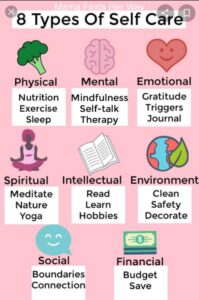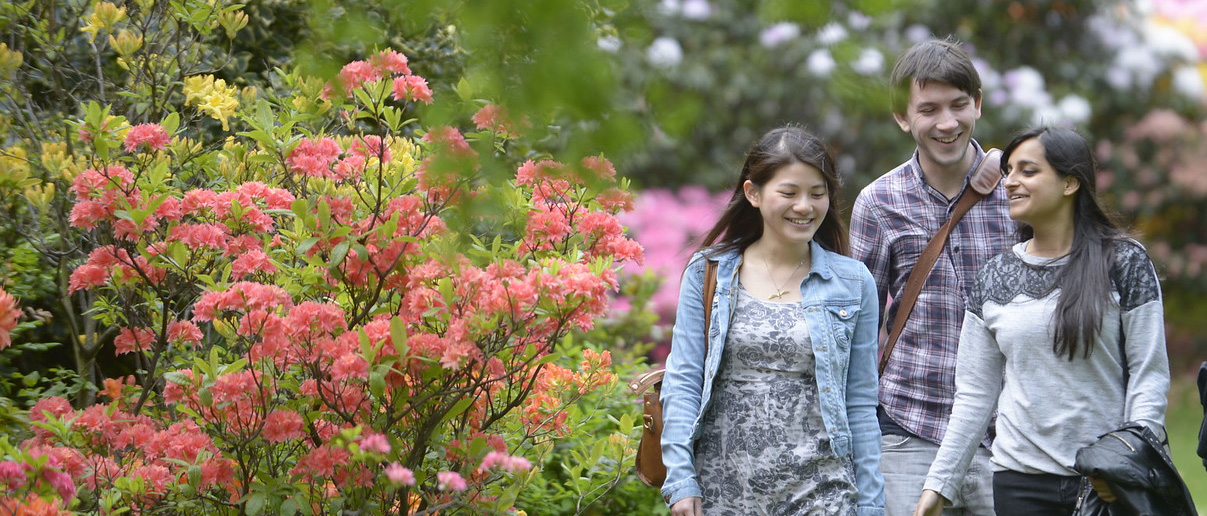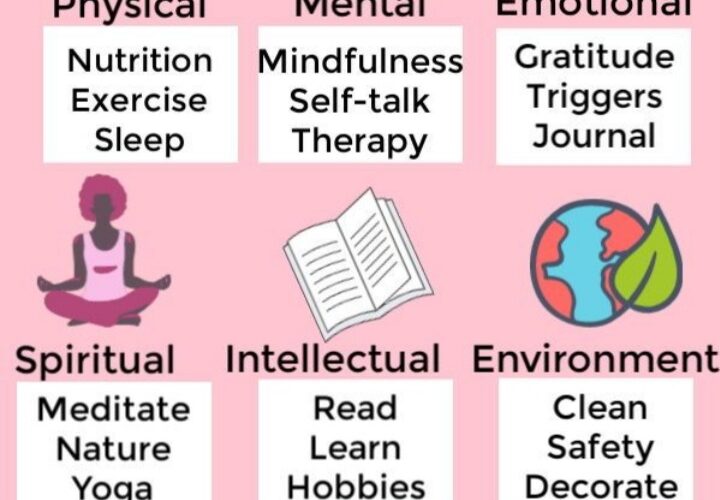Do you have an established self-care routine or are you unsure as to where to start?
Now in her second semester as a master’s student at the University of Edinburgh, Adekiite is here to offer you her tips for effective self-care.
Blog by Adekiite, MSc Africa and International Development
It was Benjamin Franklin who once wrote in a letter to Jean Baptiste Le-Roy that in this world nothing can be said to be certain, except death and taxes. Well, I am writing to you in this letter, that in the world of graduate school, nothing can be said to be certain, except stress and more stress. Okay, just kidding! But seriously though, amidst the limitless reading lists, dense study materials and numerous essay deadlines, it is easy to continuously operate on autopilot: research, critique, write, turn in and repeat the cycle while ignoring physical, emotional, financial, spiritual, and personal issues which can lead to negative well-being. Our conversation today is about effective self-care in graduate school for maximum productivity. So, grab your choice of refreshment and let’s dive in.

Self-care, according to the Oxford dictionary, can be defined as the practice of taking an active role in protecting one’s own well-being and happiness, particularly during periods of stress. There are different forms of self-care that are applicable to a master’s student.
The first and a very critical one is academic related. Being the raison d’etre of one’s stay in the university, it will be hard for any student to be in the best place mentally if not performing to the best of your ability, academically. It is therefore important to learn effective time management skills as well as to take the initiatives to develop the skills needed for academic progress such as critical thinking and academic writing. In this regard, the Institute of Academic Development here at the University of Edinburgh runs several training programmes that are very useful. Equally, developing healthy work relationships with classmates and with previous students who have excellent understanding is helpful for peer-reviewing and for attaining subject-specific expertise.
The second is emotional self-care. It is easy to get stressed especially if one is an international student who has left families and significant others to study abroad. In attending to one’s emotions, it is important to find empathy and practice self-compassion as well as to seek help when needed. Engaging in activities like journaling, stress management exercises, listening to music or making art is helpful. Personally, I have loved the university’s residential buddy initiative that pairs students with similar interests together to explore different activities like touring, hiking, coffee hangouts or whatever they so choose. With my buddy, a Chinese lady, I have attended a new church where I have experienced a spiritual rejuvenation and we plan on climbing Calton Hill when the weather permits. Further, the Advice Place and Listening Service offers emotional counselling to students and the feedback from colleagues who used this service have been great. I would also add that having personal memorabilia of the things or people that matter most to you is a no-brainer.
The third is financial self-care. This has to do with maintaining your financial goals and obligations. Bills are certain but one must engage in money management and budgeting to keep away from financial trouble. It is not uncommon for students to splurge on wants as against needs. For clarity, a need is needed to survive, a want is simply a desire that you can live without. Fear of missing out on discounts is also a real thing that can lead to unwise spending. Seeking help or information on financial management is the way to go. In the event of running out of money which can happen due to unforeseen circumstances, there are outlets for support by the University and external organisations from which help can be sought.
Other forms of self-care include physical, social, and spiritual. Physical self-care has to do with maintaining physical well-being through adequate exercise, healthy eating, sleep, and rest. Social self-care has to do with healthy family and relationships; creating a healthy balance between time spent with others and oneself and positive use of social media. Spiritual self-care has to do with religious beliefs or spirituality that is ensuring connection, prayer, or meditation; reflection and attending worship groups.


All forms of self-care are equally important, but self-care needs vary across individuals. Achieving a stress-less, more successful grad life is possible. Taking the time to see where the balance tilts and leaning back to correct as needed is what matters. This conversation is certainly not exhaustive and does not seek to prescribe what activities constitute self-care. The hope is to set you, fellow grad buddies on a path of better self-management to engage in things that contribute positively to your mental well-being and productivity in different aspects of life.
Thank you for reading and cheers to a stress-less grad life!




Pingback: Goodbye, Edinburgh! Reflecting on a year of postgraduate study – Students at SPS